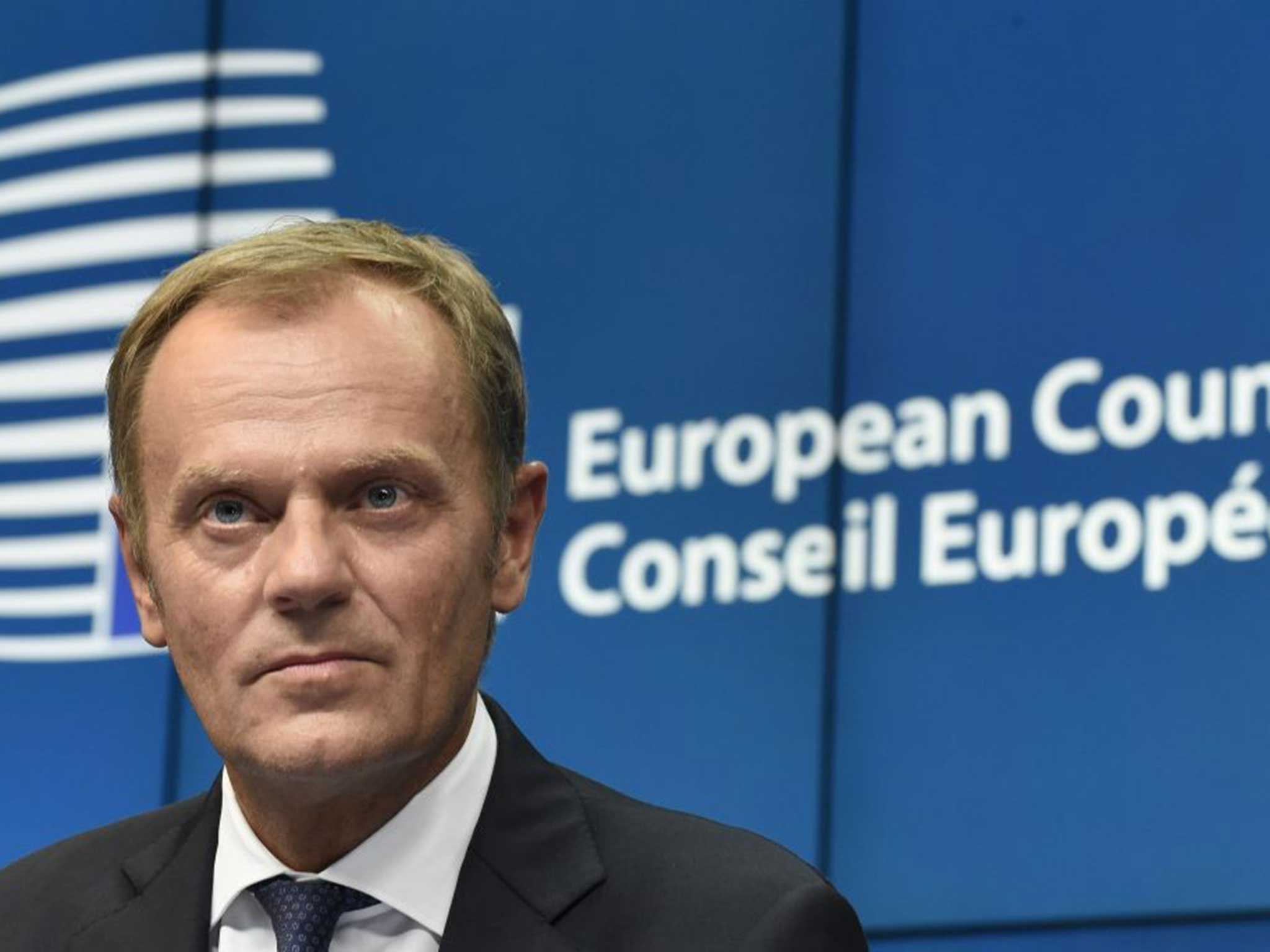New European Council President 'determined' to keep Britain in the EU
Polish PM, Donald Tusk, sure agreement can be reached on issues such as concerns over the free movement of people

The newly anointed President of the European Council insisted last night that he was determined to keep Britain in the EU, saying he was ready to address David Cameron's concerns about EU reform and the free movement of people.
Donald Tusk, the Polish Prime Minister, was named Council President by the 28 EU heads of government at a meeting in Brussels yesterday. The leaders also chose Italy's Foreign Minister, Federica Mogherini, to succeeded Britain's Catherine Ashton as High Representative for Foreign Affairs.
While there had been some splits between Eastern and Western Europe about both appointments, Mr Cameron had come out in favour of Mr Tusk, and the Polish politician yesterday indicated that he was open to Britain's renegotiation of its EU membership. "The EU and I personally will take on the concerns voiced by the UK," he said. "I'm sure the future of the EU is not about making it smaller, about contraction, and no reasonable person can imagine the EU without the UK."
He said he had discussed reform with Mr Cameron, adding that he was sure "we can reach an agreement" on issues including British concerns over the free movement of people.
Mr Cameron had suffered a set-back in June when Jean-Claude Juncker was named President of the European Commission. Britain tried to block his appointment on the grounds that he represented the old federalist vision of the EU at a time when Britain and other nations were pushing for reform.
He was therefore keen to see an ally as European Council President, who chairs the meetings of the EU heads of government and is a key consensus builder between member states.
A No 10 source said the Government had always been clear that they were seeking a candidate "who would be willing to work with us" on Mr Cameron's reform agenda: "That was something where the PM and Tusk had a constructive conversation at the beginning of the week."
The appointment of Mr Tusk to replace Herman Van Rompuy is also believed to have helped convince Eastern European nations to back Ms Mogherini as foreign affairs chief. Disagreements over the post had prevented a deal being reached at the last EU summit in July, with concerns among Eastern European nations that Italy had not been hawkish enough in response to Russia's annexation of the Crimea.
Subscribe to Independent Premium to bookmark this article
Want to bookmark your favourite articles and stories to read or reference later? Start your Independent Premium subscription today.

Join our commenting forum
Join thought-provoking conversations, follow other Independent readers and see their replies